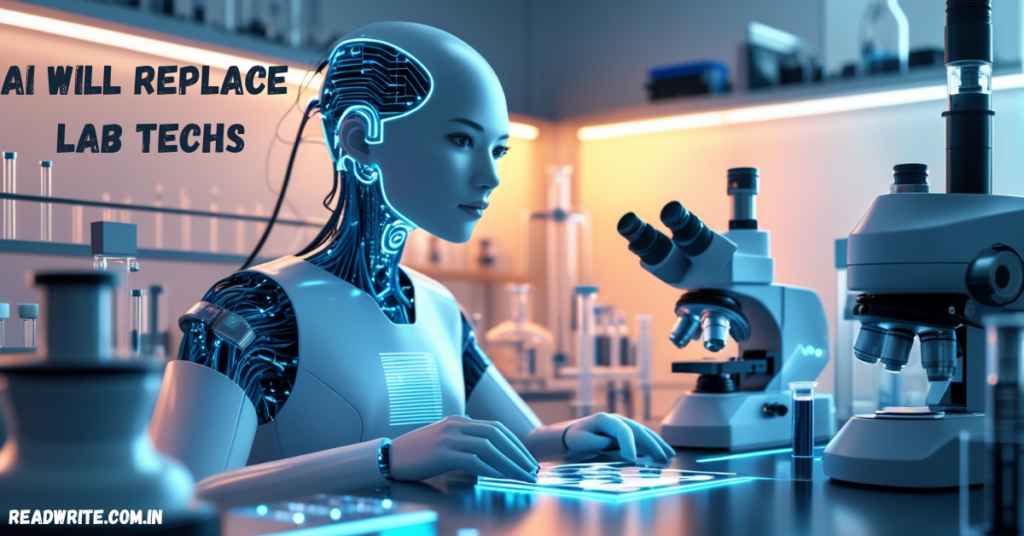In the ever-evolving landscape of technology, artificial intelligence (AI) has emerged as a transformative force across various industries. One sector that stands at the cusp of a significant transformation is the field of medical and clinical laboratories. With AI-driven systems demonstrating unparalleled efficiency and precision, many are questioning whether AI will replace lab techs in the near future. This blog explores the role of AI in laboratory settings, the potential implications for lab technicians, and the steps needed to ensure a balanced integration of technology and human expertise.
The Rise of AI in Laboratories
AI technology has made remarkable strides in automating complex processes, analyzing vast datasets, and delivering accurate results. In laboratory environments, AI is being employed for tasks such as:
- Sample Analysis: AI-powered machines can quickly and accurately analyze blood, tissue, and other biological samples, reducing the chances of human error.
- Data Interpretation: Advanced algorithms can interpret complex results from tests like genetic sequencing, identifying patterns that might be missed by human technicians.
- Automated Workflow: Robotic systems integrated with AI can handle repetitive tasks such as pipetting, labeling, and sorting samples, thereby increasing efficiency.
- Predictive Diagnostics: AI tools can predict potential health conditions based on laboratory data, aiding in early diagnosis and personalized treatment plans.
Why AI is Gaining Ground in Labs
The adoption of AI in laboratories is driven by several factors:
- Accuracy and Precision: AI systems significantly reduce the risk of errors, ensuring reliable test results.
- Speed: Automation allows labs to process a higher volume of samples in less time, crucial during high-demand situations like pandemics.
- Cost Efficiency: AI can lower operational costs by reducing the need for extensive manual labor and minimizing waste.
- Scalability: AI-powered laboratories can easily scale their operations to meet growing demands without compromising quality.
Will AI Replace Lab Techs Completely?
While AI offers numerous advantages, the question remains: AI Will Replace Lab Techs entirely? The answer is complex and depends on various factors, including technological advancements, regulatory frameworks, and ethical considerations. Here are some key points to consider:
1. Tasks Suited for Automation
AI excels in repetitive and data-intensive tasks, such as:
- High-throughput screening
- Quality control checks
- Routine diagnostic tests
By automating these processes, labs can free up human technicians for more critical and creative tasks.
2. Human Judgment and Expertise
Despite AI’s capabilities, certain tasks still require human expertise. AI Will Replace Lab Techs bring:
- Contextual understanding of test results
- The ability to troubleshoot equipment issues
- Hands-on skills for specialized procedures
AI lacks the emotional intelligence and situational awareness needed for these nuanced responsibilities.
3. Collaboration Between AI and Lab Techs
Rather than AI Will Replace Lab Techs, AI is more likely to serve as a complementary tool. By handling routine tasks, AI enables technicians to focus on higher-value activities, such as interpreting results and communicating findings to healthcare providers.
Potential Challenges of AI Adoption
The integration of AI in laboratories is not without its challenges. Some of the concerns include:
- Job Displacement: As AI takes over repetitive tasks, there’s a fear that it could lead to job losses for lab technicians.
- Skill Gap: Lab techs may need to acquire new skills, such as programming and data analysis, to stay relevant in an AI-driven workplace.
- Ethical Issues: AI systems must be designed and implemented responsibly to avoid biases and ensure equitable healthcare outcomes.
- Regulatory Hurdles: Ensuring compliance with health regulations and standards is crucial when deploying AI in medical settings.
Preparing for the AI Revolution in Labs
To navigate the transition to AI-powered laboratories, several measures can be taken:
1. Upskilling Lab Technicians
Educational programs should focus on equipping lab techs with skills in:
- AI and machine learning
- Data analytics
- Maintenance and calibration of automated systems
2. Developing Ethical AI
AI systems must be designed to prioritize fairness, transparency, and accountability. This includes:
- Regular audits to detect biases
- Clear communication about how AI processes data
3. Policy and Regulation
Governments and healthcare organizations must establish robust policies to govern AI usage, ensuring patient safety and data security.
4. Fostering Collaboration
Encouraging collaboration between AI developers, healthcare professionals, and lab technicians can lead to more effective and user-friendly AI systems.
The Future of Lab Techs in an AI-Driven World
While AI is poised to revolutionize laboratory operations, it’s unlikely to render lab techs obsolete. Instead, their roles will evolve. Lab technicians will transition from performing routine tasks to:
- Supervising AI systems
- Interpreting complex data
- Innovating new diagnostic techniques
- Providing personalized patient care
This shift will enhance job satisfaction by allowing lab techs to engage in more meaningful and impactful work.
Conclusion
The debate over whether AI will replace lab techs underscores the broader conversation about the future of work in the age of automation. While AI brings undeniable benefits to laboratory operations, its success hinges on a balanced approach that values human expertise. By embracing this synergy, laboratories can harness the full potential of AI while ensuring that lab techs remain an integral part of the healthcare ecosystem. As we move forward, the focus should be on fostering a collaborative environment where technology and human skillsets complement each other, driving innovation and improving patient outcomes.

